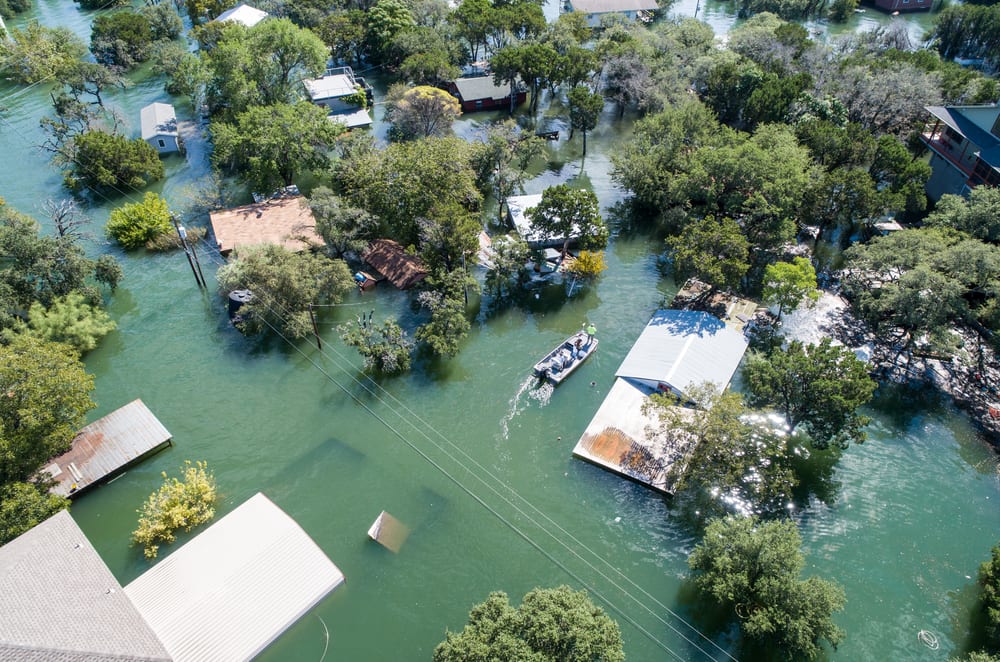There has been a steady increase in urban flooding across the country over the last three decades. While changing weather patterns and severe storms play a part, urban sprawl and outdated sewer systems are just as big of a problem. From urban floods to street flooding, we look at why cities are flooding more frequently. Plus, we explore why floods in urban areas are particularly dangerous and how to prepare for them.
What is Urban Flooding
Simply put, urban flooding is flooding in cities and towns. While hurricane and severe storm flooding is most common, even slow-moving rainshower can cause a flood.
Although you probably don’t think of winter as a time for flooding, snowmelt is becoming a serious issue in cities. Melting snow is a major cause of flooding in many cold weather cities.
What Causes Urban Flooding?
There are three main causes of urban flooding:
- Outdated sewer systems – Most of our sewers were put in shortly after World War II. In many cities, sewers are taxed even without having to deal with heavy rains or snowmelt.
- Population growth – The number of people in most cities has doubled or even tripled in the last one hundred years. This puts a strain on already problematic sewer systems.
- Lack of drainage – We’ve added more buildings and streets to keep up with all those people, which means less green space for natural drainage.
How Does Urban Development Affect Flooding?
Unfortunately, continued urban development increases the chances of flooding. As cities grow, they don’t always update their sewer systems. So not only is more land paved over, but there aren’t enough storm sewers to handle the rainwater.
What Is Street Flooding?
The increase in parking lots and roads has led to a new term, street flooding. Similar to flash floods, street floods occur when water fills road surfaces. When floods occur in cities, streets serve as a perfect surface for the water to flow. Curbs, buildings, and even parked cars help to channel water along the street surface.
Why Are Urban Floods So Dangerous?
The main reason that urban floods are particularly dangerous is that they are often unexpected. While it seems unlikely that water will flood down the street and damage your home or building, that’s exactly what happens.
Plus, street floods can develop quickly. Floods in urban areas can form in less than a half hour and can quickly sweep across the city. Not only can they damage your home, but just six inches of water is enough to move a car.
Another thing to consider is the risk of a sewage backup. Too much water can overwhelm the sewer and they can back up into your home, spreading mold and bacteria.
How Do You Prevent Floods in Urban Areas?
The best way to prevent any flood is to maintain your home and yard. Make sure the soil around your house slopes away from your foundation. Also, keep bushes and trees three feet away from your home.
Remember to clean your gutters and downspouts at least twice a year. If you have a lot of trees in your area, clean them more often.
Finally, check your basement or crawl space any time it rains. Look for signs of leaks or cracks that could lead to bigger problems in the future.
Whether caused by urban flooding or a burst water pipe, Restoration Local will quickly remove the water and repair the damage. Our restoration specialists have the training and experience to restore your home fast after any disaster. Call 1-888-443-3110 now for a free estimate on flood restoration and repair.





